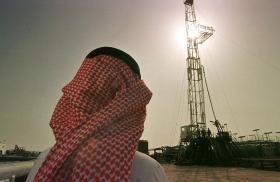The arrival of large numbers of Iraqi planes in Iran is almost certainly another effort by Saddam Hussein to reduce Iraq's isolation and widen the war. As he explained to CNN on January 28, he views Iran as a "fellow Muslim nation" which shares his view of the confrontation as "a battle between Faith and the Infidel." The dispatch of planes to Iran -- complete with a veneer of mystery that gives Tehran plausible deniability of any foreknowledge -- is also a useful way to shelter his air power from increasingly deadly allied air attacks while perhaps preserving them for later use to support a ground war.
Saddam's move may be the best he can make in his current difficult circumstances, but it is unlikely to succeed. Iran's President Hashemi Rafsanjani explained at the Tehran prayers last Friday, "If we help Iraq . . . the Persian Gulf would be turned into the Arabian Gulf. Is this not suicide in your view?" Rafsanjani sees Iran's two greatest enemies -- the U.S. and Iraq -- fighting, and he wishes them both a long and bloody war. Iran's supreme spiritual leader, Ali Khamenei, made the moral argument on Thursday: "The parties involved in the Persian Gulf war are fighting for wrong, secular, and unholy goals. The Islamic Republic rejects both sides."
Rafsanjani and the Hard-liners
Saddam, however, may be hoping for a change in Iranian policy once a ground war gets underway. Already, the Iranian radicals have the support of 40 percent of the Parliament members for their call to attack the United States. Ali Akbar Mohtashemi, the radicals' spokesman, recently expounded in Parliament about "the religious duty to rise for a jihad in confrontation against the infidel forces of America and Zionism." The prominent torturer, Sadeq Khalkhali, told Parliament in the same debate, 'We should not leave the Iraqi people standing alone in this battle." But the hard-line camp is split. Ahmad Khomeini, son of the late Ayatollah, insisted "the Iraqi Ba'ath party has nothing to do with Islam" and accused Saddam of "crimes against Muslims." The hard-liners' newspaper, Jomhouri-e Islam, was similarly outraged that Saddam, whom it regards as a Zionist-American puppet, claims leadership of the Muslim cause. Indeed, Mohtashemi has backtracked, telling Parliament on January 24, "Confronting the U.S. in the Persian Gulf is jihad . . . Does this mean defending Saddam? Certainly not."
Not only are the hard-liners split, but they have been weakened by the increasingly heavy hand of President Rafsanjani. The hard-liners have lost repeated battles about economic policy. In October, Rafsanjani felt immune enough from criticism to resort to quite blatant rigging of the election rules to ensure that the hard-liners lost control of their last stronghold, the Assembly of Experts that chooses the supreme religious leader when the old one dies. The hard-liners could not reverse the election scam despite considerable popular sympathy for them. On the issue of the war, they are bucking a strong popular will to stay out of hostilities. In short, it is highly probable that Iran will stay out of the conflict and the Iraqi planes will stay grounded.
Another Saddam Miscalculation
Saddam is probably right if he assumes that pressure for aid to Iraq will grow in Iran as the allies turn the screws on Baghdad. Already, the radicals have won agreement to official shipments of food and medicines to Iraq plus a loosening of controls against private smuggling of other goods. Iraq's aircraft maneuver has increased the pressure on Rafsanjani, which was probably Saddam's intention. But like his other efforts to widen the war -- launching Scuds against Israel, calling for world-wide terrorist attacks, inciting the overthrow of moderate Arab leaders, and pumping oil into the Gulf -- this latest ploy by Saddam is unlikely to succeed.
What will Iran do with the planes after the war? The easy answer is that it will return them. Given the heavy Iranian propaganda during and after the Iran-Iraq war designed to get back its own planes that had been flown to Arab nations by defectors, Tehran would be hard put to explain keeping the Iraqi planes. The hard question is what will Iran demand from Iraq as a quid pro quo. Iran could want something as innocuous as return of the last POWs or better access to Shi'ite holy sites in Iraq. Or Iran could want to meddle in post-war Iraqi politics, e.g., by insisting on freedom or privileges for Tehran's favorite Iraqi opposition group (the Supreme Assembly of the Islamic Revolution in Iraq).
Saddam Hussein's latest move is a risky gamble -- a sign of his growing desperation. Only the pressure of the imminent destruction of his air force would lead him to expose himself to the dangers of post-war Iranian pressure in exchange for the small chance of Iranian involvement in the war.
Patrick Clawson is the editor of Orbis and a resident scholar at the Foreign Policy Research Institute. He was desk officer for Iraq and Kuwait at the International Monetary Fund in the mid-1980s. His most recent publications include two Washington Institute studies: Iraq's Economic and Military Vulnerabilities (Policy Focus #14, October 1990, with W. Seth Carus) and Unaffordable Ambitions: Syria's Economic Crisis.
Policy #63


